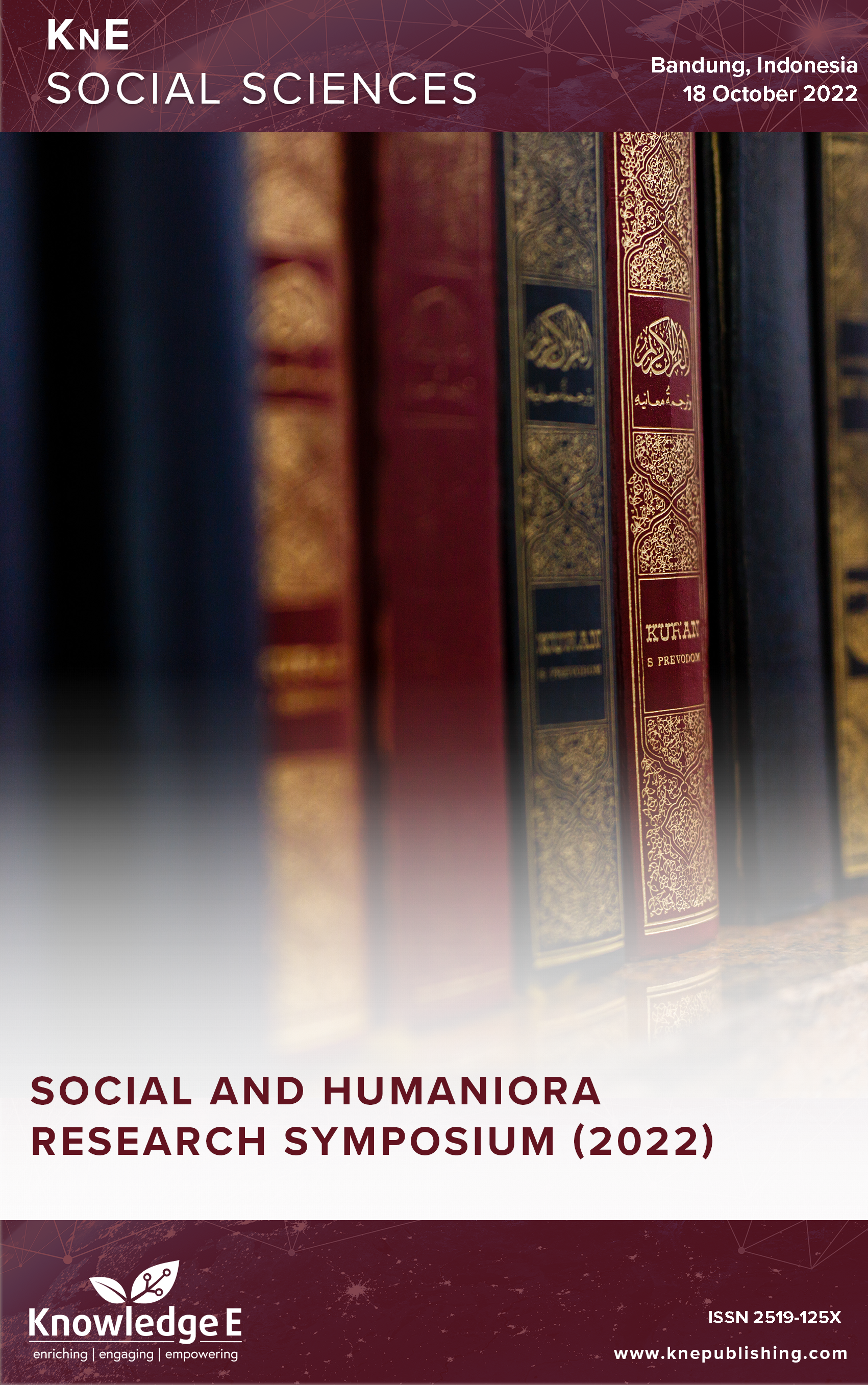Social Media Use Education of Digital Marketing for Disabled Women Community
DOI:
https://doi.org/10.18502/kss.v8i18.14355Abstract
The research background stems from the extensive opportunities provided by the internet, serving diverse interests within the community. The integration of new media in business has yielded significant results, bolstering the development of businesses within the community. This inclusivity extends to individuals with disabilities, particularly women, who possess the right to harness new media for creative self-development and empowerment. The research aims to: 1) comprehend how creative women with disabilities in Bandung perceive online marketing communication principles, 2) assess the ability of disabled women in Bandung to grasp online marketing communication applications, and 3) enhance the skills of disabled women in crafting creative messages for online marketing. The study employs a descriptive method with total sampling drawn from participants of social media marketing training. Data collection utilizes questionnaires, interviews, and references. The significance of entrepreneurship development training utilizing marketing communication applications for disabled women in Bandung is evident. The conclusion of this study indicate that the majority of learners comprehend the training content, albeit hindered by diverse disabilities such as blindness, deafness, and physical limitations. Consequently, a specialized approach is necessary to address these disparities. Furthermore, participants are equipped with supporting applications for content packaging and dissemination. This empowers them to navigate different digital media platforms adeptly. Communication prowess, attractive content, and design are paramount for conveying persuasive messages effectively. Participants’ reported improved communication skills as a result of the training. However, those facing physical constraints encountered difficulties and required tailored training to accommodate their limitations. In summary, the research underscores the potential of online marketing communication education for women with disabilities. This empowers them to engage in entrepreneurial endeavors, fostering personal growth and community development.
Keywords: education, online marketing communication, women with disabilities.
References
[2] Ramsey L, Albutt A, Perfetto K, Quinton N, Baker J, Louch G, et al. Systemic safety inequities for people with learning disabilities: A qualitative integrative analysis of the experiences of English health and social care for people with learning disabilities, their families and carers [Internet]. Int J Equity Health. 2022 Jan;21(1):13.
[3] Bonilla M, Abdul BC, Ruiz RG, Martín AR. Influencers with intellectual disability in digital society. An opportunity to advance in social inclusion. 2022;10(1):222–234.
[4] Hao Y, Xiao R. How disability income benefits affect employment for persons with disabilities in China: An impairment-based work disability assessment perspective. 2022.
[5] Ahmadi D, Yanuarti E. Reflective writing: Students’ diaries to improve the teaching and learning process. 2020;409(SoRes 2019):521–524. https://doi.org/10.2991/assehr.k.200225.113
[6] Niekerk V, Meahabo D, English A. How education, training and development support the wellness of employees with disabilities. 2022;1–16. https://doi.org/10.4102/ajod.v11i0.882.
[7] Barnes TD, Beaulieu E. Engaging women: Addressing the gender gap in women’s networking and productivity. PS Polit Sci Polit. 2017;50(2):461–466.
[8] Salvatore C, Wolbring G. Coverage of disabled people in environmental-educationfocused academic literature. 2022;1–23.
[9] Ather SM, Khan NU. Relationship between social media marketing and consumer buying behavior University of Peshawar Islamia College Peshawar. 2018;4(2):193– 202.
[10] Rahmadini Y, Halim RE. the influence of social media towards emotions, brand relationship quality, and word of mouth (WOM) on concert’s attendees in Indonesia. MATEC Web Conf. 2018;150.
[11] Ahdiyana M, Andari S, Listyawati A, Mardiyati A. Collaborative governance in realizing an inclusive workforce for people with disabilities to achieve sustainable development goal’s. 2021;884(59):1–11.
[12] Learning S. Education sciences teaching for positive and transformational creativity through service learning. 2022.
[13] Bimha H, Sridhar P. Challenges faced by women entrepreneurs in small and medium enterprises in Swaziland. 2018;IX(2):85–96.
[14] Luo J, Pan X, Zhu X. Discovery of repost patterns by topic analysis in enterprise social networking. Aslib J Inf Manag. 2017;69(2):158–173.

